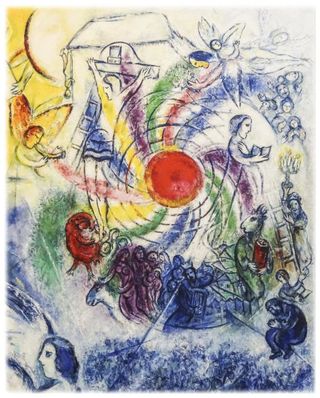
Just over 2,076 years ago, in the middle of March, the bloody body of Julius Caesar was left in a heap in the senate. But just 4 months later, his ancestress, Venus, turned him into a comet and flew him over the Forum.
It showed up shortly before sunset, in the eleventh hour, and flashed for 7 days: a longhaired star that was conspicuous all over the world. Caesar’s soul had been admitted among the immortal gods. “Venus struck her breast with both hands and tried to hide him in a cloud,” remembered the poet Ovid. Processit Caesaris astrum, remembered the poet Virgil: Caesar’s star had swept across the heavens, and now everything blossomed. Fields filled with grain and grapes grew in clusters. Grandchildren proliferated.
Less than 2 years after they stabbed him to death, Caesar was deified by an act of the senate. For Caesar’s successor, it took less than 2 months. In September of AD 14, by another decree of the senate, Augustus was awarded celestial honors. Mihi semper deus, Virgil had already written: Augustus would always be a god to him. And in one of his odes, Horace had imagined the first emperor in heaven. “Augustus shall sip nectar with purple lips,” he supposed, as he lounged about in his astral citadel with Bacchus.
Other Roman citizens would be resurrected soon afterward. Roughly a generation after the first Roman emperor was gone, Paul of Tarsus introduced himself in a letter to the Galatians as “Paul an apostle—not from men nor through man, but through Jesus Christ and God the Father, who raised him from the dead” (Galatians 1:1). Later he reassured his friends in Corinth about the resurrection: “For I delivered to you as of first importance what I also received, that Christ died for our sins in accordance with the scriptures, that he was buried, that he was raised on the third day” (1 Coriinthians 15:3-4). One of Paul’s rough contemporaries, generally remembered as Mark, wrote the first gospel a few years after that. He remembered how after the sabbath, a group of women brought spices to anoint Jesus’ body, but found the stone at the entrance rolled back from his tomb, and somebody who told them: “Do not be amazed; you seek Jesus of Nazareth, who was crucified. He has risen” (Mark 16:6). That message would be repeated in the gospel of Matthew, a few years afterward. It would be repeated again in the gospel of Luke; and it would be repeated again in the gospel of John. “I am the resurrection and the life; he who believes in me, though he die, yet shall he live, and whoever lives and believes in me shall never die” (John 11:25-26).
John followed with a story about the resurrection of Lazarus. One day toward the end for his life, when Jesus was in Bethany, near Jerusalem, he found out that his good friend had died and been buried for 4 days in a cave. “He cried with a loud voice, Lazarus, come forth. And he that was dead came forth.” They took off the grave clothes that had bound Lazarus head and foot; then they took the napkin from his face. Jesus' performance worried powerful men. “From that day forth they took counsel together for to put him to death” (John 11:44, 53).
Other resurrections had already happened in the Hebrew Bible (1 Kings 17:17-24, 2 Kings 4:32-37, 13:21). They were the work of the prophet Elisha ("O Lord my God, let this child's soul come into him again"), and of the prophet Elijah ("As he stretched himself out upon him, the flesh of the child became warm").
More resurrections would be foretold in the Quran. “In the name of God, Most Gracious, Most Merciful, I swear by the Day of Resurrection,” one chapter begins, and it ends, “The human being will be his own judge. No excuses will be accepted” (sura 75:1-15).
There are resurrections in Hinduism; and in Buddhism, the soul wanders from one incarnation to another, seeking the path to nirvana.
With the exception of the very first replicator on earth, every living creation has been a rebirth. Life rejuvenates itself. Regeneration defines life.
And it will define us.


